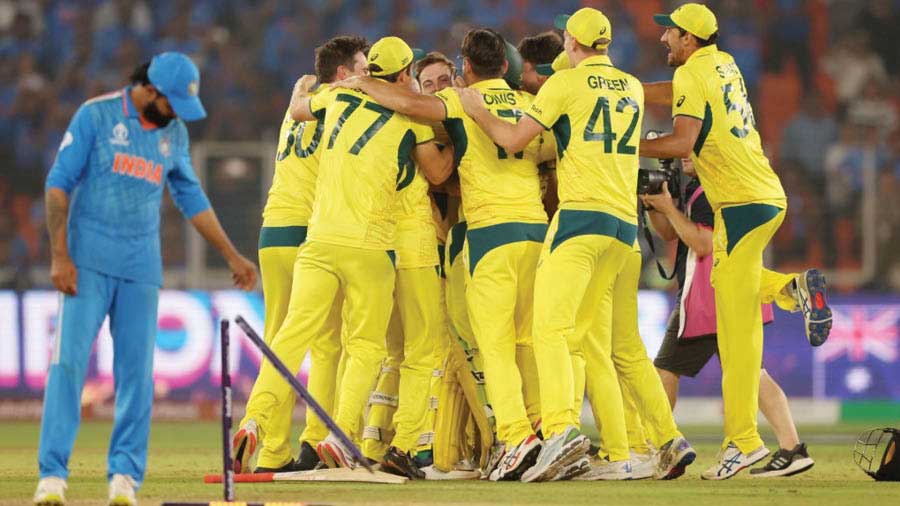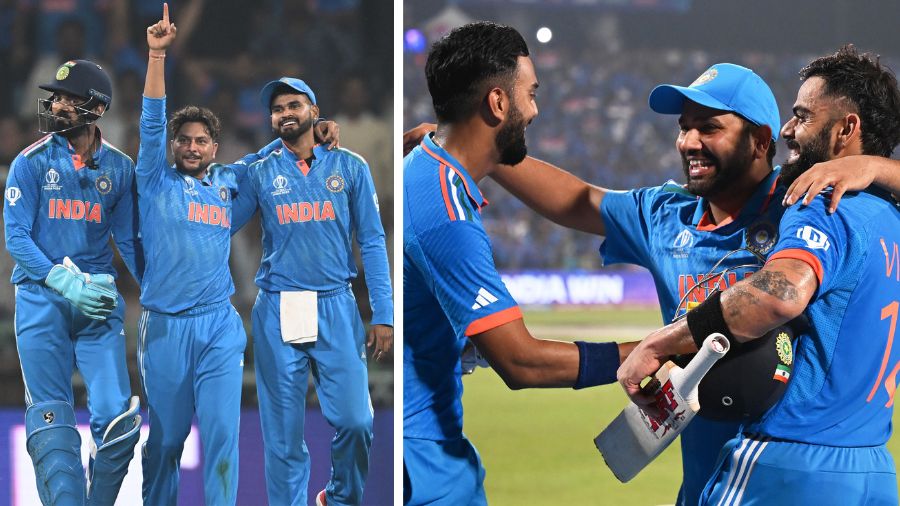I distinctly remember the day. It was a Tuesday morning during a cool Bangalore December. We were playing a football tournament. As it happens when the match is scheduled at 6am, a few of our players did not arrive in time, forcing us to start with nine players. We were the decided losers of the contest even before it started. Our team was nowhere, we were defending with 10 players pretty much throughout the game. Yet, somehow, out of nowhere, I scored midway through the second half. What followed was carnage. The opposition with its star-studded lineup of state players decided to beat the game out of us. They committed aggressive fouls every time we got the ball, however briefly. We won that game, with many bruises to show for against a brutal display of aggression. I kept thinking: “If you had played smart possession football, you would have won 4-0.” And when the injuries hurt really bad that night, I also kept thinking that the violence was uncalled for.
On Wednesday, I showed up for an inter-university match at the tennis court. I used to represent my university team in the South zone, but could not play because of the football injuries from the previous day. Over the next 40 minutes, I watched my teammate get systematically decimated on court in one of the most controlled displays of highly aggressive tennis I have watched live. Yet, unlike the previous day, there was no swearing, no “Rrgh!” There was just a smile and a nod before the handshake to celebrate a job well done. Over the years, I have seen this phenomenon a lot. I have been questioned on it, too. The question therefore is, is aggression uncalled for in sport and life?
Should athletes not be aggressive?
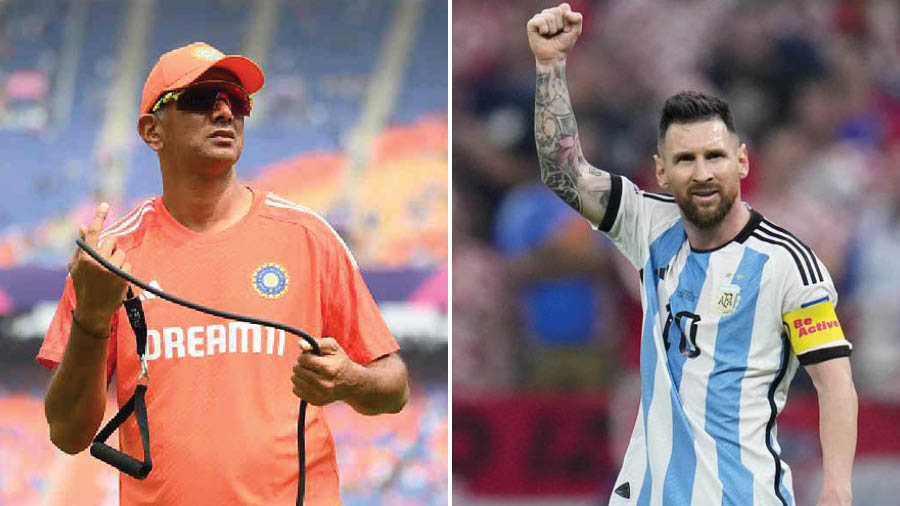
When you read ‘aggressive’, you are automatically primed to think about physical aggression. But champions, like Rahul Dravid and Lionel Messi, also find within them a high level of tactical aggression that culminates in a ruthlessly consistent execution of skills
TT ArchivesThink of the very best in a sport. Pick a name. Any name. I would be willing to bet that they are highly aggressive. You might be sceptical, especially if you are thinking of someone in the mould of a Rahul Dravid or Lionel Messi. But therein lies the interesting difference. When you read ‘aggressive’, you are automatically primed to think about physical aggression. But champions also find within them a high level of tactical aggression that culminates in a ruthlessly consistent execution of skills.
There are different levels of aggression in sports. You have the physical aggressive behaviours of pushing, slamming, glaring and in general, trying to impose a physical presence. Some athletes immediately come to mind. This type of chest-spreading bravado is typically seen in direct contact sports such as football, American football, rugby, basketball, netball and so on. This is actually quite useful because these games have two teams contained within a physical space (court or field of play), trying to compete for the transitions around one object (the ball). Physical dominance implies dominance of space, and therefore, is quite useful. But think of how useless it would be if an archer is trying to ‘hulk up’ against their competitor three lanes away.
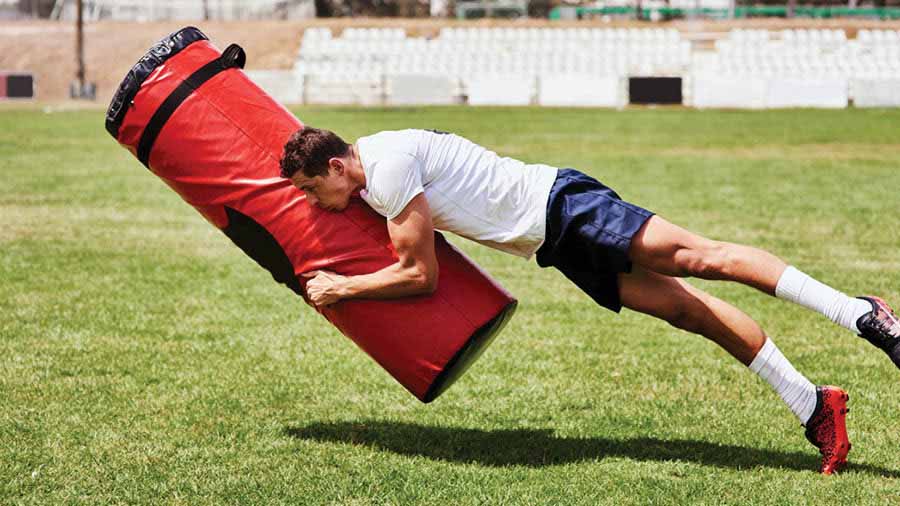
In trying to impose a physical presence, chest-spreading bravado is typically seen in direct contact sports such as football, American football, rugby, basketball, netball and so on
iStockWhen aggression is driven by a loss of control, anger or frustration, it is called hostile aggression, and usually does not confer any performance benefit. Aggression comes out in a tactical and strategic sense as well. A person might not appear to ‘lose their cool’ even once, but their gameplay might have an uncompromising edge to it that makes their opponent buckle under the imposed pressure. This might include constant attacks to an opponent’s weakness (Novak Djokovic has perfected this) or a come-what-may description of one’s own unstoppable strength (Steph Curry shooting three-pointers from ridiculous positions). Think of a pace quartet in cricket being absolutely laser focused on a hostile line and length while bowling consistently at 140+ kmph. Think of Barcelona in their prime cutting open opposition teams through a flutter of passes before an aggressive front movement when space opened up. This is called instrumental aggression in which there is always a goal or objective. Yes, sledging in cricket is a perfect example of this when done within the spirit of the game.
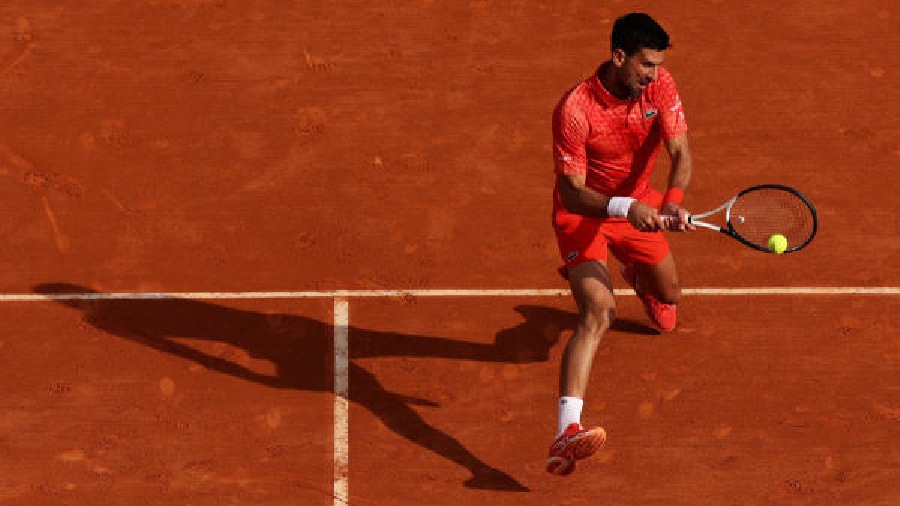
Aggression comes out in a tactical and strategic sense as well — this might include constant attacks to an opponent’s weakness, like Novak Djokovic has perfected
TT ArchivesThe point of aggression
The point of aggression is to unsettle the opponent. It is a tactical choice. But it only works if you are comfortable with the display and have the necessary skills to go with it. Too often we see individuals trying to be aggressive but increasing their errors in the process. This makes no sense. Think of it this way, imagine you want to buy something, so you rush to the store five minutes before it closes. You are aggressive on the horn, blasting your way through to the traffic; but when you reach there you realise it's a Monday and the store closes early. Tactical error and useless aggression usually go hand in hand.
I’m not saying aggression is useless — sometimes it is needed to get things done in life. All I am saying is, sometimes when we yell at the sun for being too hot on a sticky summer’s day, we are the ones losing our mind in the heat.
Dr Sahen Gupta is a Kolkata-born, India- and UK-based psychologist who divides his time between mental health support and high-performance coaching. As the founder of Discovery Sport & Performance Lab, he works not only with Olympians and other top-level sportspersons, but also with CEOs and other professionals striving for excellence. Dr Gupta’s mission is to simplify complexities of the mind into actionable and simple ‘doables’ that allow individuals to be mentally fit.



